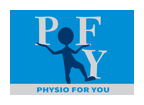Neck Pain
INJURY AND POSTURAL PROBLEMS ARE THE MAIN CAUSES OF NECK PAIN. PHYSIOTHERAPISTS CAN IDENTIFY THE REASONS FOR YOUR NECK PAIN AND PROVIDE PROVEN EFFECTIVE TREATMENT.
WHAT CAUSES NECK PAIN?
Your head is heavy and balanced on a narrow support made up of seven bones called vertebrae. The vertebrae are separated from each other by discs, stabilised by joints and ligaments and moved by muscles. Because the neck is so mobile, it is easily damaged. Injury and postural problems are the most common causes of neck pain. Diseases such as arthritis or degeneration of the discs can also cause pain.
NECK INJURIES
Neck injuries most often result from motor vehicle, sports or occupational accidents. Damage may occur to vertebrae, joints, nerves, discs, ligaments and muscles. A common neck injury is the acceleration/deceleration injury or “whiplash” where the head is thrown forward or backward.
POSTURE
Bad posture can cause neck pain. Ligaments are over-stretched, muscles become tired and the neck joints and nerves are put under pressure.


PREVENTING NECK PAIN
Here is some useful advice to help you control and prevent neck pain.
POSTURE
Think tall: chest lifted, shoulders relaxed, chin tucked in and head level. Your neck should feel strong, straight and relaxed.
SLEEPING
A down pillow or a urethane pillow is best for most people. Avoid sleeping on your stomach. Your Physiotherapist will assess and advise you.
RELAXATION
Recognise when you are tense. You may be hunching your shoulders or clenching your teeth without realising it.
WORK
Avoid working with your head down or to one side for long periods. Frequently stretch and change position. Your physiotherapist will show you how.
EXERCISE
Avoid working with your head down or to one side for long periods. Frequently stretch and change position. Your physiotherapist will show you how.
HOW PHYSIOTHERAPY CAN HELP
Physiotherapists will be able to determine the source of your neck pain and treat it. They may use:
- Mobilisation
- Manipulation
- Functional and Rehabilitative exercises
- Encouraging normal activity
- Postural assessment, correction and advice
- Relaxation therapy
- Laser, Ultrasound, electrotherapy and heat treatment
- Massage
Manipulation can be an effective treatment for neck problems, but it may not be the best option in every situation. After a full examination your physiotherapist will discuss treatment options with you. Your physiotherapist will carefully check your neck before manipulating it to see if other methods, such as mobilisation, would be preferable.


HEALTH REBATES
You may consult a physiotherapist either directly or by referral from your medical practitioner. Most private health insurance funds offer rebates for physiotherapy treatment. Physio For You offers on-the-spot HICAPS claiming.
Some patients are eligible for Medicare rebates for physiotherapy, contact us for more information.
YOUR COMPLIMENTARY COPY SUPPLIED BY:
PHYSIO FOR YOU
Jacqueline Eaton
Director
Ph: 02 4392 1547
Fax: 02 4380 8410
Email: Jacqui_physio@live.com.au



